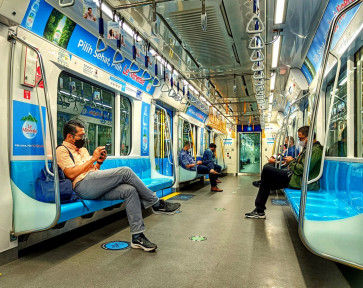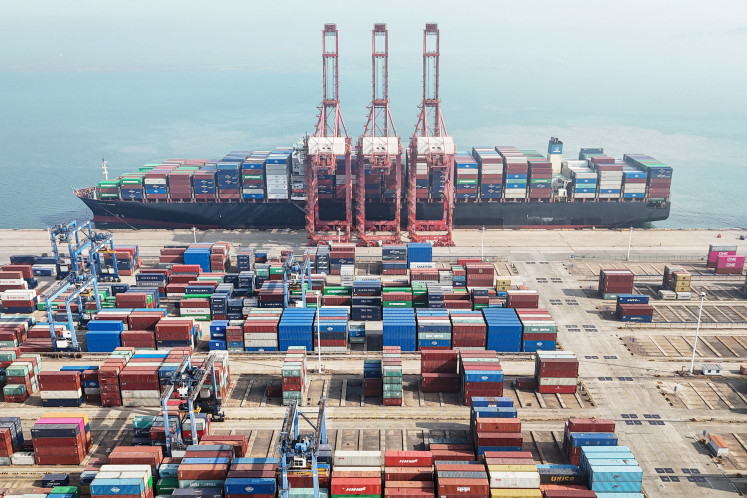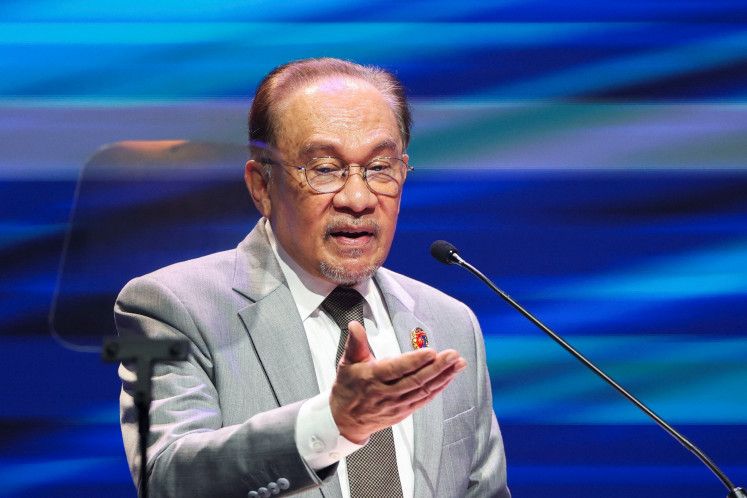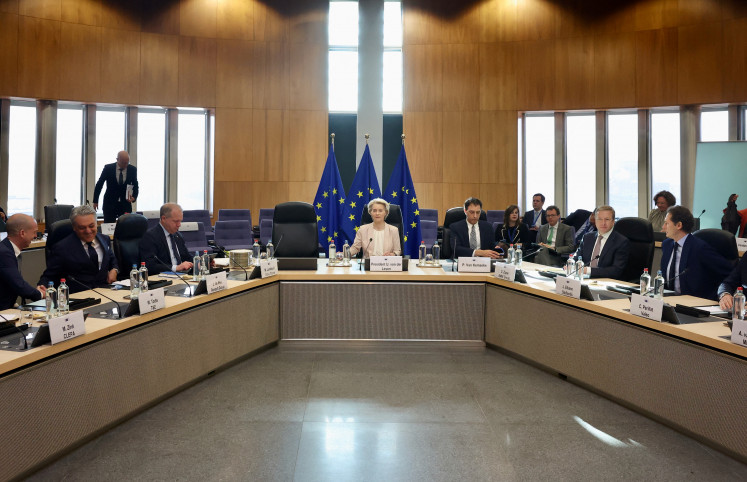Popular Reads
Top Results
Can't find what you're looking for?
View all search resultsPopular Reads
Top Results
Can't find what you're looking for?
View all search resultsCIMB, Danamon ask BI to be more lenient in DFS program
Private lenders CIMB Niaga and Bank Danamon have asked Bank Indonesia (BI) to be more lenient in creating the benchmark for its upcoming Digital Financial Services (DFS) program, aimed at providing banking access to millions of âunbankedâ and âunderbankedâ Indonesians
Change text size
Gift Premium Articles
to Anyone
P
rivate lenders CIMB Niaga and Bank Danamon have asked Bank Indonesia (BI) to be more lenient in creating the benchmark for its upcoming Digital Financial Services (DFS) program, aimed at providing banking access to millions of 'unbanked' and 'underbanked' Indonesians.
CIMB Niaga president director Arwin Rasyid said on Thursday that he hoped the central bank would not be 'too rigid' in its core capital limit and would consider his bank in its deliberations.
'BI should really see what banks are truly committed to developing branchless banking,' he said on the sidelines of a financial services congress in Singapore.
He added that CIMB Niaga, part of Malaysia's CIMB Group had submitted an official letter to BI, expressing its intention to participate in the DFS, but had not received a definite answer.
The DFS is a continuation of BI's branchless banking pilot project, which was carried out from May to November 2013. As many as five lenders took part in the project including state-run lenders Bank Mandiri, Bank Rakyat Indonesia (BRI), Bank Sinar Harapan Bali (a subsidiary of Mandiri), private lender Bank Tabungan Pensiunan Nasional (BTPN) and CIMB Niaga.
During the May to November period, all five lenders ' in partnership with telecommunication firms and home-based businesses ' carried out their own customized branchless banking activities in several provinces determined by BI: Bali, Central Java, East Java, North Sumatra, East Kalimantan, South Sulawesi, South Sumatra and West Java.
CIMB Niaga, now the fifth largest bank by assets, chose Central Java and West Java.
Following the end of the pilot project, BI said that it would issue an official regulation, in which it would lay out the qualification criteria for banks, telecommunication companies and the infrastructure required.
However, during several occasions, BI deputy governor Ronald Waas said that banks under the BUKU IV category, with core capital of more than Rp 30 trillion or US$2.57 billion, were the ones that would most likely be able to participate in the DFS due to their 'IT systems' and 'strong capital'.
Of all original participants, only Mandiri and BRI are listed under the BUKU IV category. CIMB Niaga and BTPN are in the BUKU III category, with core capital of between Rp 5 trillion and Rp 30 trillion, while Sinar Harapan is still listed under BUKU I, with core capital less than Rp 1 trillion.
According to Arwin, publicly listed CIMB Niaga spends more than Rp 1 trillion in its annual IT capital expenditure. 'The regulation has not come out yet. As a regulator, I think BI needs to get input,' he said.
Meanwhile, Danamon president director Henry Ho said that his bank, the sixth largest lender, wanted to participate in pilot project. 'But for reasons that were only known to BI, it limited the number to only five lenders,' he said after attending the same congress. According to Ho, Danamon is interested in participating in the DFS as well, but the core capital limitation will prevent it from doing so as it is currently a BUKU III category bank.










